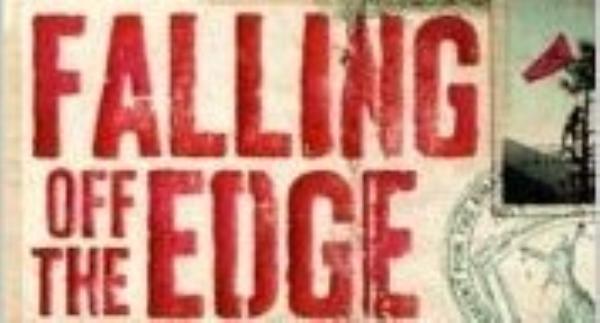‘Boom, then Bang’ is the title of Alex Perry’s first chapter, which forcefully announces his frontline journalistic genre. The Africa Chief for Time Magazine, based in Cape Town, takes you to places that Google-journalists don’t reach. His ‘if you want to know, go’ approach is as sound as it is old-fashioned. The result is another view of the world and an exceedingly sobering take on globalization.
He puts me in mind of the adrenaline-addicted ‘Bang-bang’ club of photo-journalists who used to cover the battlefields in the final agony of apartheid. Unlike Greg Oosterbroek, who was killed while covering the action, Perry has been lucky. He survived the crucial battle of Qali-i-Jangi in Afghanistan, a five-day incarceration in one of Robert Mugabe’s jails and the street-battles that erupted during the last days of god-king Gyanendra’s regime in Nepal.
Perry reports on the wars that we never hear about, partly because we don’t want to and partly because governments don’t want us to. The Naxalite insurgency in India is an example. How serious is that? Perry thinks deadly serious; I know what he’s getting at. Every week in South Africa there are demonstrations, which sometimes get violent, protesting against the corruption and incompetence of local government, but these rarely make it into the newspaper headlines or are among the first items of the state broadcaster’s news programme.
Perry’s purpose is not just to enjoy the dubious pleasures of these edgy places with their apparently obscure conflicts. He’s also trying to sound a warning to a complacent world. He sees a consistent pattern in these putatively peripheral conflicts. This is a deep resentment not just at the huge inequalities in the global divide, but in the fact that these inequalities are growing all the time. He writes to tell us how the more militant members of the ‘bottom billion’ feel about those of us who live on the top and how they are not only bent on toppling governments in their own regions but also in igniting world revolution. They represent a violent, globalized response to what they perceive as globalized violence directed against them through the economic, cultural and military power of the usual Western suspects. It sounds quaint and retro to hear about Maoist rebels in Nepal, but when these people, in classic Marxist-Leninist language, describe themselves as part of a vanguard to overthrow capitalism, such conflicts cease to seem quite so marginal.
Perry agrees with the British philosopher John Grey in identifying Western and particularly US hubris as the belief that market-capitalism is the ideology of a historical end-time. This, like other forms of millenarianism, is likely not to take hold, even in places where popular journalism keeps telling us that it’s sweeping the board. Perry’s reports from China and India force us to reassess this perception of market-driven globalization as an inherently unstoppable force which will ‘end history’ and bring about an era of prosperity and world peace. The China that Perry reports on is a far less stable place than the media – and of course China’s leaders – would have us believe. And India is not the new Silicon Valley of popular press reports. As for the much-vaunted Indian middle class, Perry regards it as a myth perpetuated by the Indian political and economic elite and Western investors who have been seduced by the hollow images projected by Bollywood and Indian advertising .
Images that illustrate this Asian Potemkin world are a Chinese mock-up of Interlaken on the outskirts of polluted Shenzhen and an Indian chat-show hostess who simply cannot bear to talk about the poverty in her country. Incidentally, there are some splendid photographs in the book taken by fellow photo-journalists ranging from an image of a female Tamil-Tiger suicide bomber to the ‘King of Good Times’, Vijay Mallya, floating whale-like on his pool in Goa.
Perhaps nothing quite sobers up the enthusiastic, market-capitalist end-timer more than the return of piracy as a serious threat on the high seas. The privateering revival in the Straits of Singapore and off Somalia takes us back to the anarchic world of Blackbeard and the ‘Golden Age’ of Caribbean piracy. But of course buccaneering never really went away, although the increase in global trade and the impoverishment of people along the coasts where it occurs have caused a dramatic increase of late.
Perry’s point is that now, as in the previous eras of piracy, the pirate pits himself against global power and often justifies his trade in terms of resentful necessity. Hence he is on the same side as the Naxalites in India, the Maoists in Nepal , or those who burn down the houses of local politicians in South Africa in so-called ‘service-delivery’ protests. Somali pirates say that because Western fishing fleets have taken advantage of the anarchy in their country to pillage their territorial waters, they have no alternative way of making a living other than piracy.
Perry’s journalistic heresies about China, India and globalization itself are tempered occasionally by more ‘orthodox’ passages where he hints that everything might just work out for the best. He suggests, for example, that the history of America’s economic development is one of ‘rape and repair’ in which the ‘Robber Barons’ eventually decided that the imbalances of wealth they had acquired were politically destabilizing and so they became philanthropists. He sees Bill and Melinda Gates and Warren Buffet as standing in this tradition. There are parallels, he thinks, between where India is today and where the US was in the late 19th century when it stood on the threshold of its modern development. Most interesting is Perry’s sympathetic portrait of Indian industrialist, Ratan Tata who understands the importance of the common good and tries to make sure it is served in the way he runs his business empire. Tata, who lives a personally frugal life, comes across as a kind of commercial philosopher-king. ‘The future of the world is about the man who earns $1 a day,’ says one of Tata’s associates, meaning that it is possible both to run a moderately profitable business which also serves the needs of the poor.
The epilogue, written for the paperback edition, assesses how Perry’s theory is doing. He concludes that it is alive and well and that the financial crash of 2008 has simply added fuel to the fire of resentment against globalization, due to the fact that a few thousand rather unrepentant bankers can have such a devastating effect on the lives of millions of poor people. That so few of them seem to grasp what they did, suggests that more of them should read Perry’s book.
The reviewer, Chris Chatteris SJ, is based at the Jesuit Institute, South Africa.






